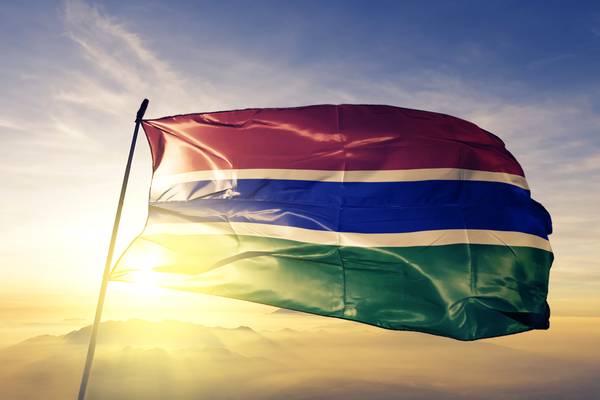
The words debt, IMF, and support together does not augur very well for any nation. Some people are already starting to propagate that nationalism jingoist anthem of “us vs them”.
Yet we are all in Africa linked to the same IMF debt controllers. The Gambia would not be the first of many African dominoes to fall under the auctioneer’s gavel. They always want leaders who steal and would never repay the debt. We are not borrowing to create wealth. They are selling us debt as a way of mortgaging our resources and thereafter foreclosing on our natural resources.
It’s cheaper that way, than buying it on the open market and bidding against China or the Arabs
Countries like USA also borrow in their own currency, so all their debts are like domestic debts carrying no forex risks.
Developed countries have higher debt to GDP ratios, let me state something. Developed countries can do so. This is because they are not developing their industries and infrastructure, hence the term developed.
They can spend a significant chunk of their revenue repaying loans. We on the other hand should be spending our revenue on development, not servicing loans. We have reached a place where we are borrowing to repay loans.
The Gambia’s domestic debt has risen to D31.8 billion in 2018. This represents 41.9 percent of Gross Domestic Product (GDP). The Governor of Central Bank of the Gambia, Bakary Jammeh disclosed that the country’s domestic debt as of May 2019 has increased from D31.2 billion in 2018 to 31.8 billion in 2019.
Mr Jammeh, who was speaking at the bank’s Monetary Policy Committee press briefing, said that the government fiscal operations for the first quarter this year showed a budget deficit of D800 million dalasis compared to 1 billion dalasis in the same period in 2018.
“Government expenditure and net lending for the first three months of 2019, increased by 11.2 percent to 4.1 billion (5.2 percent GDP, whereas recurrent expenditure increased by 2.4 percent to 3.0 billion (3.8 percent GDP), compared to D2.6 billion (3.7 percent GDP) in the first quarter 0f 2018,” the governor said.
He highlighted the risks to the economy as low agricultural production, high debt level, adding that in view of the factors, the committee judged the current monetary policy stance to be appropriate and decided to maintain the Monetary Policy Rate at 12.5 percent.
The Gambia’s GDP has been shrinking for decades if it were not for the massive loans that are propping the economy. One sign is the slow growth of middle class compared with population growth.
Spending power of citizens has seen very sluggish growth especially because of the recent massive layoffs and concentration of wealth at the very top while the middle and lower class are finding it increasingly difficult to maintain their living standards.
This is bad for the simple reasons that the wealthy tend to save or stash their money elsewhere, meaning there is less to be spent to buy goods and services in the economy as compared to when that same wealth is in the hands of the middle and lower class who tend to spend almost all their income leading to more goods and services being bought and the economy growing.
That’s what Jammeh was doing, and this regime is doing the same practices. Hopefully they will rectify the situation and promote practices that encourage increased employment through purchasing goods and services from Gambian businesses (and not through the satanic tender preneurship).
Seriously, we need a completely new way of thinking. The debts of the powerful are not the same as the debts of the poor, for example. Economists routinely talk about the “moral hazards” of letting someone off the hook for their legitimately incurred debts.
In capitalism, contracts are a sacred oath, they declare. And so on. Yet when Wall Street banks were unable to repay trillions of dollars of unsecured debt because of their reckless pursuit of easy returns, the sanctity of debt repayment somehow evaporated.
By Alagi Yorro Jallow











Recent Comments